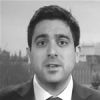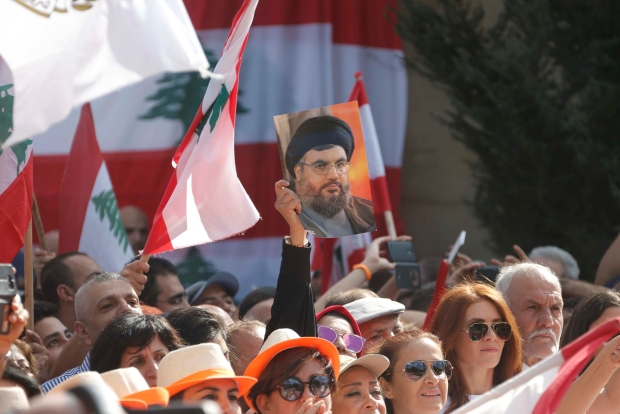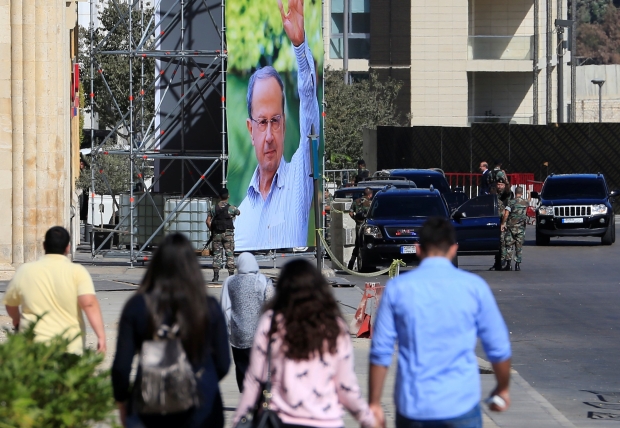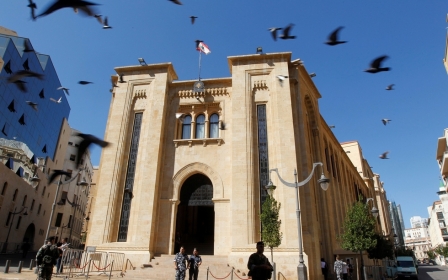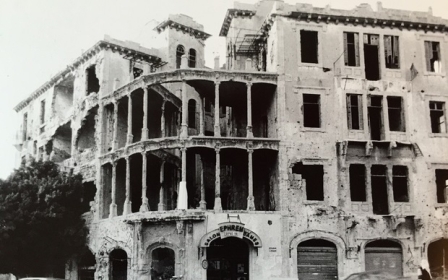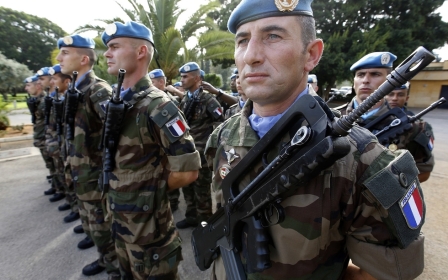Aoun's first year: Lebanon's resilience hides the seeds of conflict and instability
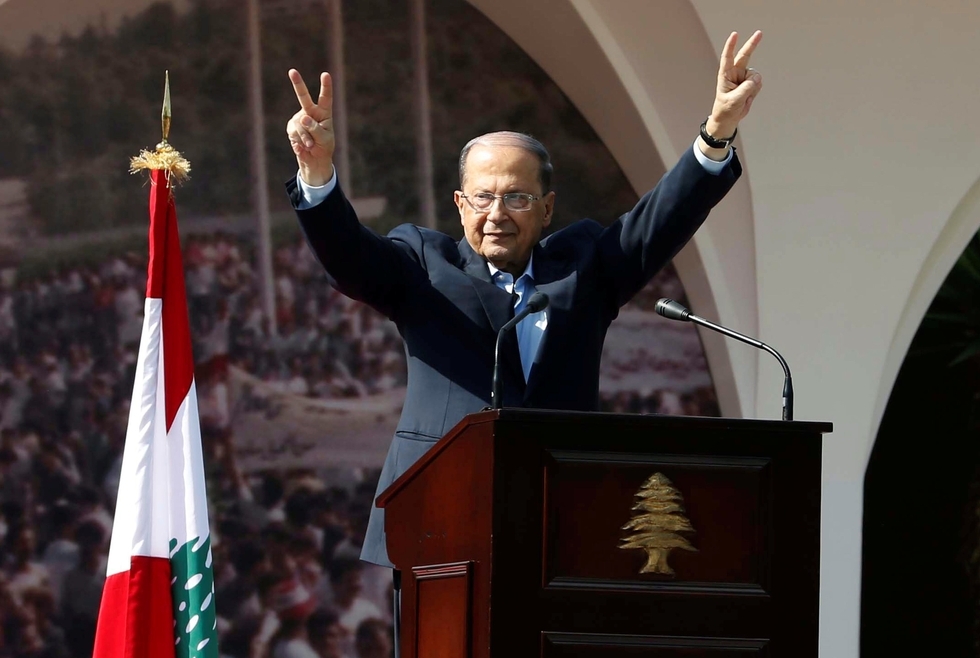
It took a while for the Lebanese public to get used to General Michel Aoun as president. It became all the harder with the unwritten custom of - and legal provisions related to - avoiding criticism, as much as possible, of the presidency being the "symbol of the nation's unity” and the guardian of Lebanon's constitution and independence.
The reason being, prior to his appointment, Aoun was known to be a controversial, hot-blooded politician. Additionally, the political settlement that saw Aoun turn into the "father of everyone" was not accepted across the political spectrum partly due to Aoun's alliance with Hezbollah. Also the parliament, which elected Aoun, is considered by many Lebanese to be unconstitutional since it has twice extended its mandate despite popular discontent.
Aoun's alliances
Despite heading the largest Christian-majority parliamentary bloc, (the Change and Reform bloc with 20 seats), and being endorsed by two chief components – Prime Minister Saad Hariri’s Future Movement and Samir Geagea's Lebanese Forces - of the "March 14 forces", a political alliance that grew as a result of the assassination of former PM Rafiq Hariri in 2005, Aoun remains in the eyes of his opponents the symbol of Iranian control over Lebanon because of his alliance with Hezbollah.
The question is how far Aoun has managed to live up to this vision and to 'regain the trust' (the motto of the Hariri government) of the Lebanese public
A year into his six-year term, Aoun's alliance with Hezbollah remains rock solid and his"working relationship" with Hariri has survived sharp disagreements, especially with regard to the relationship with the Syrian regime.
No longer the divisive figure as "General Aoun", President Aoun has managed to maintain an image of the "fatherly figure", leaving the political haggling to his son-in-law Gebran Bassil, minister of foreign affairs and emigrants. Bassil has seemingly managed to alienate Geagea and to draw him closer to MP Sleiman Frangieh, another Christian leader and head of Marada Movement, with talk of a possible electoral alliance despite the historical bad blood between them.
Despite being described as "too early", Geagea's adviser didn't rule out a possible electoral alliance with the Marada in the future.
But what about Aoun's promises to the Lebanese people?
'Regaining the trust'
Writing from his exile in France back in April 1999, Aoun exhorted his supporters saying, "let us first end the [Syrian] occupation, and the rest will become easier".
Twelve and a half years after the withdrawal of the Syrian troops from Lebanon in 2005, "the rest" has proven to be no easy task.
The promise of "reform and change" championed by Aoun's Free Patriotic Movement (FPM) since 2005 has been effectively a slow and steady route of adaptation and integration "within" the Lebanese political system.
Aoun's supporters and politicians say otherwise, insisting that FPM remains outside of the state apparatus, unscathed and unblemished by corruption and mismanagement of public funds, despite claims to the contrary by its opponents.
In his inaugural speech, Aoun described himself as "a president who came at difficult times, and on whom high hopes are placed to overcome difficulties and not merely conform and adapt to them, and to ensure the stability that the Lebanese long for, so that their greatest dream is no longer the travel bag [to emigrate]".
The question is how far Aoun has managed to live up to this vision and to "regain the trust" (the motto of the Hariri government) of the Lebanese public.
Hariri speaks about "tens of accomplishments" during the last 10 months of his government. Similarly, Aoun's supporters point to the many achievements that have taken place since the advent of the "strong presidency" (as they call it).
Chief among them undoubtedly was the liberation of the outskirts of Arsal territories that were occupied by Islamic State (IS) and Jabhat Fatah Al-Sham. The military operation was generally welcomed by the Lebanese public despite some criticism of Hezbollah’s role in the operation.
Appointments were made in several key security and judicial vacant positions, albeit with some criticism over the process in terms of its constituting "another step in extending the political authorities' dominance over the judiciary and its work".
The parliament approved the first state budget since 2005, although MP Sami Gemayel, head of the Kataeb party, described it as a "blatant and shameless violation of the constitution" for failing to account for the spending of $11bn outside the state budget.
Aoun's first obligation was to adopt an electoral law prior to the next elections. Parliamentary elections were postponed for one year but a new law was passed.
Despite being hailed as an achievement, it was noted that the many shortcomings of the law, in addition to the manner in which it was formulated behind closed doors by a few representatives of the political class, should be considered worrisome by all Lebanese.
Impunity, corruption and the independence of the judiciary
Furthermore, there remains a sense among the "anti-establishment" forces that Lebanon suffers from endemic and systematic corruption, and that a culture of impunity remains unchecked.
Suffice it to cite three issues that exemplify the challenges both Aoun and Hariri have yet to tackle in order to deliver on their promises.
First, there is a general perception that public officials exploit their offices to further their personal and their parties' interests, especially during election season.
Second, it is welcome news that Aoun has emphasised the importance of the independence of the judiciary.
Evidently, more work needs to be done to safeguard the separation of powers, in rhetoric and in practice, especially when it comes to political interference in the judiciary.
Confronting xenophobia and sectarianism
The third issue that Aoun and Hariri need to tackle as a matter of urgency is the Syrian refugee crisis (at least 1.5 million) amid rising tensions, dehumanising rhetoric and an increased inclination to ignite sectarian tensions when discussing a vital issue that might cause further problems if it is not approached sensibly.
Aoun is in a unique position to lead the country on this issue. Precisely because the majority (arguably) of the Christian community see him as the "strong president" who will safeguard "Christian rights", his presidency will be determined in part by the type of leadership he chooses to exhibit on this issue.
Especially if he succeeds in de-escalating the sectarian rhetoric and in making Syrian refugees feel welcome and safe, without denying the urgent need for international assistance to help alleviate the heavy burden on Lebanon's shoulders.
Lebanon faces enormous challenges, and it has been common to praise Lebanon's "resilience", as researcher Jamil Mouawad pointed out in a recent academic article.
The jury's still out and the verdict of the Lebanese people will be revealed in a few months through the ballot box
However, according to Mouawad: "Lebanon's lauded resilience is actually the resilience of its elites, whose purpose is to undermine state institutions. The stability of Lebanon is the resilience of its elites, which in turn hides the seeds of conflict and instability that might erupt at any point."
This sober reminder is a useful way to look at the achievements of the strong presidency's appointments in various state positions.
Will these appointments contribute to an actual reform of state institutions? Or will they merely strengthen a new political elite and civil servants who are loyal to Aoun - and in the process, merely contribute to further "resilience" in the sense used above, namely: the continued undermining of state institutions?
The jury's still out and the verdict of the Lebanese people will be revealed in a few months through the ballot box - unless, of course, another "technical" postponement of the parliamentary elections takes place in the name of "security", "stability" or "resilience".
- Halim Shebaya is a Beirut-based analyst and researcher. He teaches in the School of Arts and Sciences at the Lebanese American University. @halimshebaya
The views expressed in this article belong to the author and do not necessarily reflect the editorial policy of Middle East Eye.
Photo:Lebanese President Michel Aoun gestures to his supporters during an event celebrating his presidency, at the presidential palace in Baabda, near Beirut, Lebanon November 6 2016 (REUTERS/Mohamed Azakir)
New MEE newsletter: Jerusalem Dispatch
Sign up to get the latest insights and analysis on Israel-Palestine, alongside Turkey Unpacked and other MEE newsletters
Middle East Eye delivers independent and unrivalled coverage and analysis of the Middle East, North Africa and beyond. To learn more about republishing this content and the associated fees, please fill out this form. More about MEE can be found here.


